Black Supremacy Through Ntando Ntongana's Strokes
- HIP Daily
- Dec 6, 2018
- 3 min read
Ntando Ntongana, self proclaimed Black Man walks through the doors of The WearHouz - frustrated by the impeccable heat wave. His outfit screams "I'm so ready for Summer." In his shorts and vintage golf shirt, and a pair of Skate Hi's - hair blacker than his drive. I offer him a seat and a glass of ice cold water and we get to chatting.
Ntando has just finished writing his matric exams and his spirit outlines the fact that he's ready to focus on his art. We didn't we waste much time chit-chatting. Our sit down proceeded in this orderly fashion.
Q: What would you say inspires your work?
Ntando: Depression & introversion inspires my work. When I was young I couldn't talk, I would stutter a lot, I couldn't communicate - so my art explains everything on my behalf.
Q: What is the concept behind the blue and black painting with the old man and a woman boxed in the television without a head?
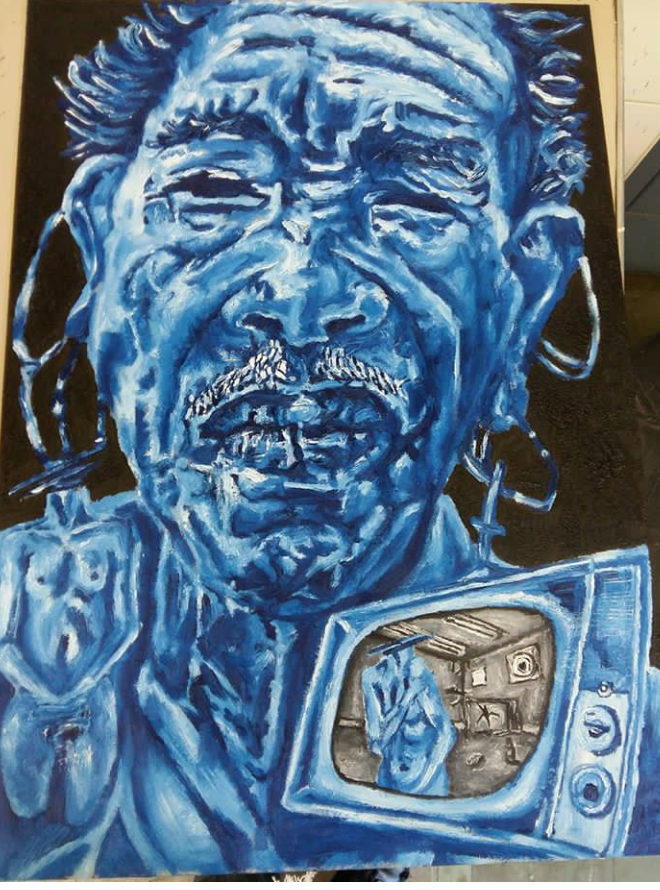
Ntando: I draw a lot of inspiration from Africanism, old people are more knowledgeable about tradition, about blackness and they know more about our roots as Africans as opposed to us the new, digital age.
In the TV screen is a woman without a head, it explains the low self esteem black women have and how it's derived from the media and television. It depicts the social oppression placed upon black women by society. The media tries to create an ideal black woman, rather than allowing black women to be who they are without trying to change them or making them socially acceptable. So this depicts an African woman trying to find herself in an artificial world.
Q: In your body of works there is a painting of an old man with a ZCC badge and earrings of women's body, what is the significance of the ZCC badge?
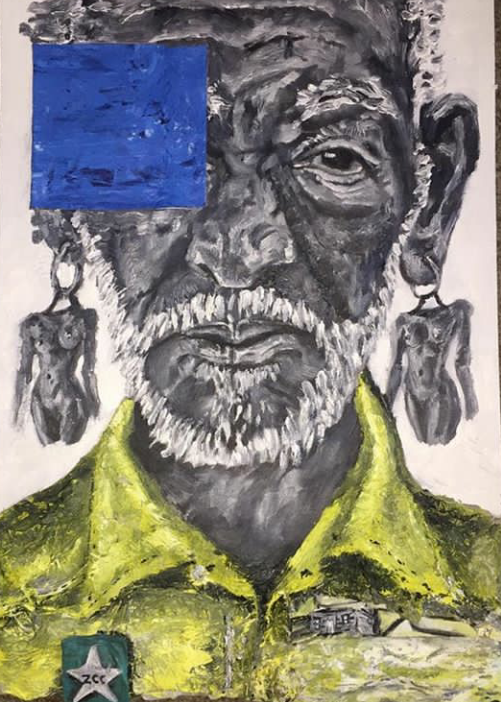
Ntando: The ZCC badge resembles African religion as a whole, Apostle, all black religious groups. Religion was brought to us by white people as a control system and we're supposed to follow that system, and the "white God" they gave us.
Q: So in your perspective the ZCC represents African religion all together perhaps?
Ntando: Yes, it does.
Q: Since you were doing your matric this year; do you plan to study art further and maybe take it further as a career?
Ntando: I'd love to go to college where there's more practical than theory, I'd love to focus on expressing my work more often and becoming a full time artist.
Q: Was Creative Art part of your curriculum in school, if so - did you choose Creative Art to groom the skill you already had or did you want to also explore the theoretical side of art?
Ntando: Actually, I didn't choose Creative Art - my teacher chose it for me because she could see the potential that I at that time didn't know I had.
Q: You say you want to become a full time artist, who would you say are your influences or artists that you look up to?
Ntando: Gerard Sekota & George Pemba.
Q: Why them specifically?
Ntando: They paint everyday life scenes of black people, they focus on life in black townships,and their work documents what happens around us in Africa.
Q: Would you say your work is driven by Pan Africanism?
Ntando: Yes, that is exactly what drives me. My aim is to express black supremacy, I'm trying to show people that you're beautiful as you are. You don't need to be white to be beautiful, you don't need to follow standards of white supremacy to be accepted by the world.
Q: Since you're agreeing to your work being politically driven in way, is that how you arrived to your artist name Black Man?
Ntando: (Laughs hard) Yes, It happened in my grade 10 year; I tried painting white people but there was no emotional attachment to the art, I couldn't feel anything. So every time I painted a black people I could feel their pain, I could feel the changes they are going through because I am one of them and I relate to their life stories.
Q: You say you want to pursue art as a full time career - which gallery do you dream to exhibit your work at?
Ntando: I'd love to showcase at the Joburg Art Gallery.
I love to express Kasi life, how we're living in the township, the knowledge you get from being from the township - the beauty of living in the kasi and I hope my work is a mere reflection of the kasi.
See more of Ntando Ntongana's art on our Gallery section
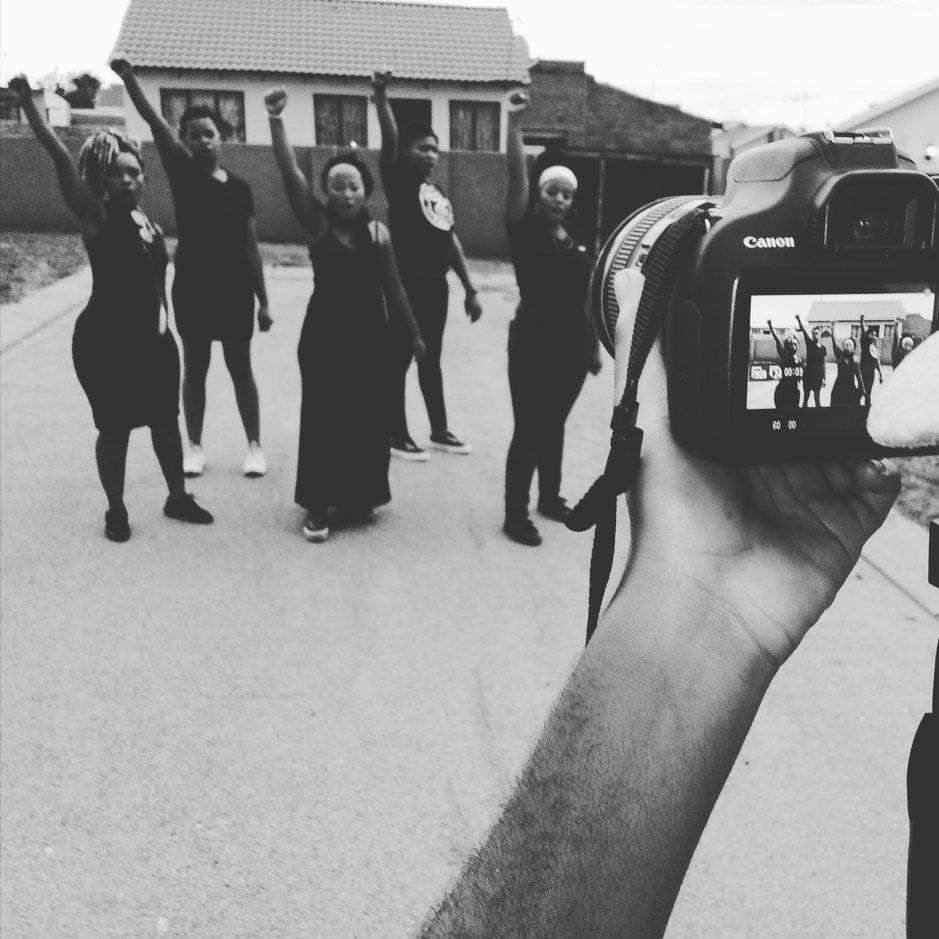
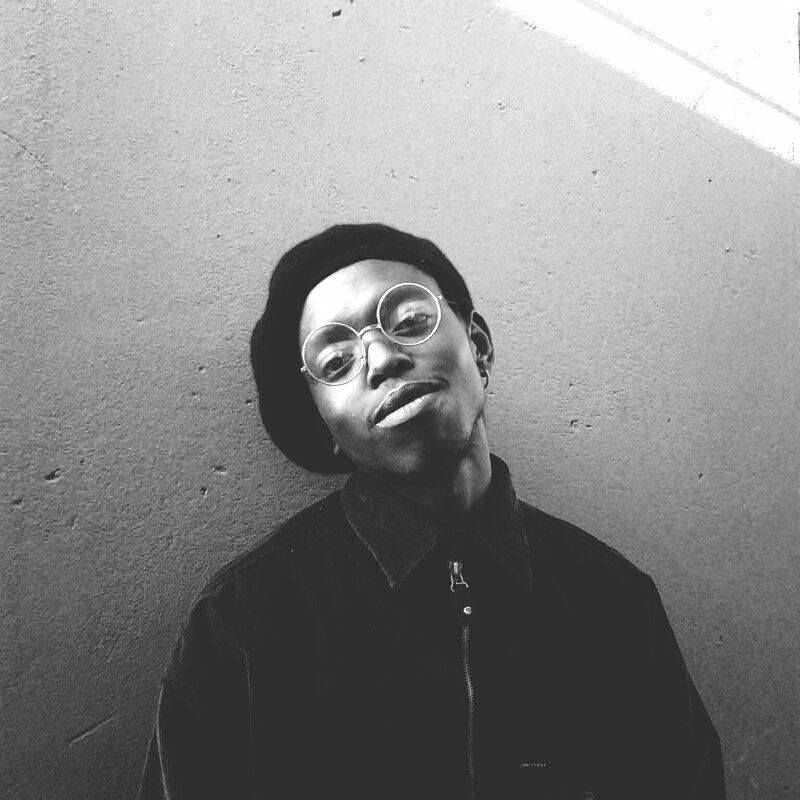

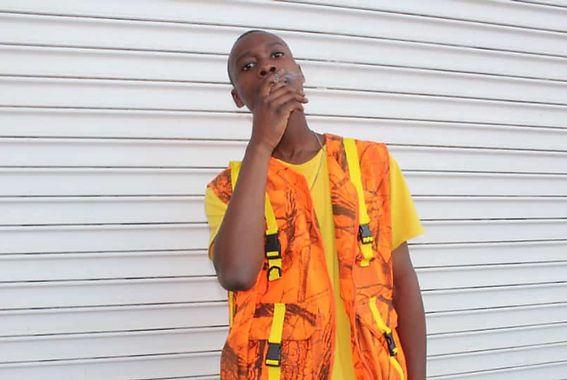
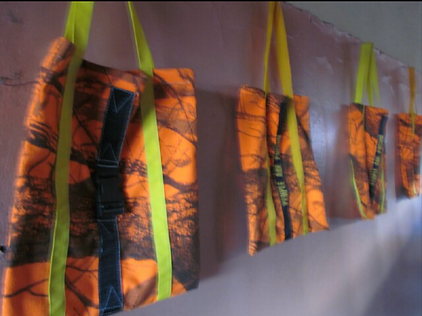

コメント